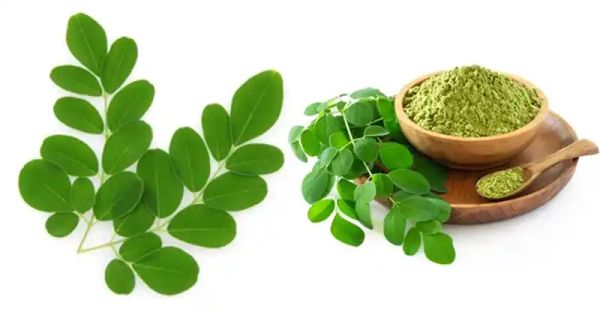Did you know there’s a tree that’s been hailed as a “Miracle Tree” for its incredible health benefits? It’s called Moringa, and it has a rich history of being used in traditional medicine. But recently, it has gained popularity in the health and wellness community. In this article, we’ll explore the top 10 health benefits of Moringa and how you can easily incorporate it into your daily routine.

1. Nutrient-Dense Superfood
Moringa is truly a powerhouse of essential nutrients. It’s packed with vitamins A, C, and E, as well as minerals like calcium, potassium, and iron. By adding just one serving of Moringa leaves to your diet, you can easily meet a significant percentage of your daily recommended intake of these vital nutrients.
2. Powerful Antioxidant Properties
Antioxidants are essential for protecting the body against oxidative stress and free radical damage. Moringa is loaded with antioxidants such as quercetin and chlorogenic acid, which have been linked to reducing inflammation, lowering the risk of chronic diseases, and promoting healthy aging.
3. Boosts Immune System
The high concentration of vitamins and minerals in Moringa, especially vitamin C and iron, plays a crucial role in supporting the immune system. By regularly consuming Moringa, you can strengthen your body’s defense mechanisms and make it easier to ward off infections and illnesses.
4. Supports Heart Health
Moringa has been shown to have heart-protective properties. It can help lower cholesterol levels, regulate blood pressure, and reduce inflammation—all important factors for maintaining a healthy heart. Adding Moringa to your diet can be a natural way to support heart health.
5. Improves Digestive Health
Moringa is known for its high fiber content, which aids in digestion and promotes regular bowel movements. Its anti-inflammatory properties can also help soothe the digestive tract, making it beneficial for individuals with conditions like irritable bowel syndrome (IBS) or gastritis.
6. Enhances Skin Health
Thanks to its rich vitamin E content and powerful antioxidants, Moringa can improve skin health by reducing oxidative stress and promoting collagen production. Whether you use it topically or consume it regularly, Moringa can help you achieve healthier and more radiant skin.

7. Supports Brain Health
Moringa contains compounds that have neuroprotective properties, supporting cognitive function and mental clarity. Its rich nutrient profile, particularly its vitamins E and C, helps combat oxidative stress in the brain, which is linked to neurodegenerative diseases like Alzheimer’s.
8. Regulates Blood Sugar Levels
For individuals with diabetes or those at risk of developing the condition, Moringa can be beneficial. It has been found to have blood sugar-lowering effects, improving insulin sensitivity and reducing blood sugar spikes after meals.
9. Potent Anti-Inflammatory Properties
Chronic inflammation contributes to many serious health conditions, like heart disease, cancer, and autoimmune disorders. Moringa’s potent anti-inflammatory compounds, such as isothiocyanates, can help reduce inflammation throughout the body, promoting overall health and reducing the risk of chronic diseases.
10. Supports Weight Management
If you’re looking to manage your weight effectively, Moringa can be a valuable addition to your plan. Its high fiber content aids in digestion and helps you feel full for longer, reducing the likelihood of overeating. Additionally, Moringa’s ability to regulate blood sugar levels can help curb cravings and maintain energy levels, making it easier to stick to a healthy diet.
How to Use Moringa
Now that you know about the incredible health benefits of Moringa, you might be wondering how to incorporate it into your daily routine. Here are some easy ways to use Moringa:
- Fresh Moringa Leaves: Harvest fresh leaves and add them to salads, soups, or stews, just like you would with spinach or kale. For a delicious side dish, lightly sauté the leaves in olive oil and garlic.
- Drying Moringa Leaves: Dry the leaves in a cool, shaded area, and crush them into a fine powder. This homemade Moringa powder can be added to smoothies, soups, or baked goods for a nutrient boost.
- Moringa Tea: Steep fresh or dried Moringa leaves in hot water for about 5 minutes to make a refreshing and nutritious tea. Add honey and lemon for extra flavor.
- Using Moringa Pods (Drumsticks): Harvest young, tender pods and cook them in soups, curries, or stir-fry with other vegetables.
- Harvesting Moringa Seeds: Eat the seeds raw or roasted, or press them to extract Moringa oil, which is excellent for cooking or skin care.
By growing your own Moringa and incorporating it into your daily life, you can experience the full range of health benefits that this amazing tree has to offer. Start small, experiment with different uses, and find what works best for you. As you become more familiar with Moringa, you’ll discover new ways to enjoy its many benefits.
Disclaimer
While Moringa is generally safe to use, it’s important to introduce it into your diet gradually to avoid any digestive discomfort. Pregnant or breastfeeding women should consult a healthcare provider before using Moringa in large amounts. Always remember to wash the leaves and pods thoroughly before using them and start with small quantities to see how your body responds.
So why not nurture your own Moringa plant and make the most of its incredible health benefits? Give it a try and see the positive impact it can have on your overall well-being. For more insights into powerful natural remedies, check out “11 Surprising Benefits of the Miracle Leaf of Life” and “Nature’s Miracle Herb for Holistic Healing.”



